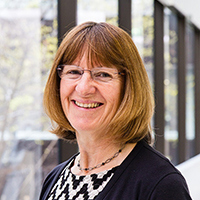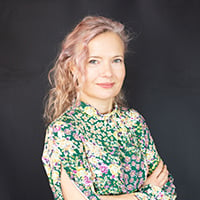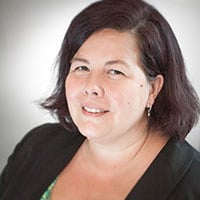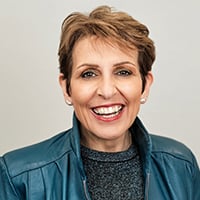Gender equality, diversity and inclusion were once after thoughts, now they are the bedrock of making better teams, better products and filling skills gaps. Much has been done, but alas, there is still much to do writes Johanna Hamilton AMBCS.
As we look at the future of IT, a report by the World Economic Forum has said that while the pandemic has accelerated automation and digitisation, while disrupting the labour market, the changes have not benefited women:
‘Only two of the eight tracked “jobs of tomorrow” clusters (People & Culture and Content Production) have reached gender parity, while most show a severe underrepresentation of women. Gender gaps are more likely in sectors that require disruptive technical skills. For example, in Cloud Computing, women make up 14% of the workforce; in Engineering, 20%; and in Data and AI, 32%.
‘While the eight job clusters typically experience a high influx of new talent, at current rates those inflows do not re-balance occupational segregation, and transitioning to fields where women are currently underrepresented appears to remain difficult. For example, the current share of women in Cloud Computing is 14.2% and that figure has only improved by 0.2 percentage points, while the share of women in Data and AI roles is 32.4% and that figure has seen a mild decline of 0.1 percentage points since February 2018.’
While COVID may have dented the figures, it hasn’t dented our resolve. We hear from seven female BCS Fellows and F-TAG members, looking at ways to break the bias in the IT industry and to celebrate equality. They explore many topics, these and shine a light on why we need more women in tech.
How do we promote gender diversity in the workplace?
As part of our work at BCS, The Chartered Institute for IT, we have created a specialist group of Fellows devoted to steering the IT industry into a better future free of bias, stereotypes and discrimination, where everyone is valued and celebrated. Our F-TAG group looks at how IT can benefit society and instigates projects across the board to bring about positive change.
We need to address bias in the school system
 ‘Computer Science is a boy’s subject, have you thought about drama?’ - those were the words uttered to a 13 year old girl, as she was deciding what subjects to choose for her GCSEs. Luckily she was undeterred and decided to pursue her interest and love of IT, and despite being one of the only girls in her class, she excelled.
‘Computer Science is a boy’s subject, have you thought about drama?’ - those were the words uttered to a 13 year old girl, as she was deciding what subjects to choose for her GCSEs. Luckily she was undeterred and decided to pursue her interest and love of IT, and despite being one of the only girls in her class, she excelled.
It’s statements like this that really disappoint me, when I hear from young people about how prospective careers are designated as subjects for boys or girls, when the reality is that there is no such thing! It’s a prime example of how we need to #BreakTheBias from an early age
The IT industry can get take action NOW to highlight that technology touches every aspect of our lives, and the wonderful world of opportunities that awaits them, which celebrates diversity of thought and backgrounds!
Sarah Armstrong Smith FBCS, Microsoft Chief Security Advisor
We need to include women in AI to prevent amplification of bias
 It's so important to #BreakTheBias in our delivery of healthcare technology.
It's so important to #BreakTheBias in our delivery of healthcare technology.
We need to build teams that truly represent the people we are providing our services for, and to encourage diversity of thought and design.
It's even more critical as we move to innovative technology such as AI, that we don't introduce bias, unconscious or otherwise.
Lisa Emery FBCS, Chief Information Officer, The Royal Marsden NHS Foundation Trust
We need to give women a seat at the (board) table
 The tech industry has put a lot of effort into addressing all types of diversity, particularly through recruitment, but barriers still exist at the more senior levels.
The tech industry has put a lot of effort into addressing all types of diversity, particularly through recruitment, but barriers still exist at the more senior levels.
Most leading employers’ policies support the view that everyone is valued and differences should be celebrated. But, traditional promotion ladders persist with those at the top tending only to pull up those in their own image and likeness whose experiences and career development paths mirror theirs.
Across the industry more flexible working patterns and career progression paths are needed to encourage and recognise the needs of each diversity group.
The pandemic has demonstrated that employers can change when necessary and the tech industry is in a great place to develop further alternative recognition and promotion paths built around an individual’s skills and contribution to project success rather than a system of standardised promotion ready tick boxes.
Sue Forder Chief Technical Officer, member of BCS F-TAG
We need to celebrate women’s advancement, not question it
 There’s still so much to do to #BreakTheBias in order to increase the number of women in tech, particularly in more senior roles. Throughout my career I have often had to defend my credentials in a way that my male peers haven’t e.g. in the opening stages of meetings.
There’s still so much to do to #BreakTheBias in order to increase the number of women in tech, particularly in more senior roles. Throughout my career I have often had to defend my credentials in a way that my male peers haven’t e.g. in the opening stages of meetings.
I end up either labouring on my technical education and experience or feeling obliged to make a particularly insightful observation or question that I really don’t need to ask - in order to demonstrate that I’ve “got this”.
Knowing that I earned my first pay cheque in tech almost 30 years ago, have a Computer Science & Maths degree from one of the most famous universities in the world for computer science (Manchester of course!) and have written / designed some pretty gnarly systems, gives me the confidence to think “I am probably the most qualified computer scientist in this room”, even when the meeting isn’t that technical.
If I didn’t have those credentials the behaviours of others, because I don’t fit the norm, would easily eat away at my confidence and could have driven me out of the industry over time. Now, of course, I have CITP and FBCS to add to my list of evidence!
The tech industry needs to a) stop assuming that women aren’t “SQEP” and b) stop talking about the confidence gap as something inherent in women and instead recognise that this chipping away at those who are different from the majority erodes confidence.
Mivy James FBCS, Digital Transformation Director at BAE Systems Applied Intelligence
We need to ALL take the responsibility for equality
 To break the bias, actions need to be undertaken from both the male and female groups of society. Males need to recognise that females can complete IT related jobs as well as, or better than males. For example, now, I have females seeking doctoral qualifications, which was rarer in the early 2000s.
To break the bias, actions need to be undertaken from both the male and female groups of society. Males need to recognise that females can complete IT related jobs as well as, or better than males. For example, now, I have females seeking doctoral qualifications, which was rarer in the early 2000s.
At the time, females were more interested in other subjects such as, the Arts, Economics, Law, or Medicine, but not anything related to IT. Females also need to raise their hands and show that they are more interested in IT related issues.
Two other issues are, first the home environment where parents could encourage females and not only the male children to indulge in IT related matters. I would also add that social media, or online social networks have begun to make mindsets change as influencers are not only men, but women too. Computer games is another arena that females need to put their hands up for and could bring more IT related issues to the forefront.
A final factor that could prompt females to begin indulging in IT related issues are the academic sector beginning from schools to universities where teachers, career fairs and milk rounds could be seeking females for IT related careers.
Jyoti Choudrie FBCS, Professor of Information Systems at University of Hertfordshire
We need to look for hidden talent
 Look at your diverse talent within your organisation rather than always looking outside for new talent. There is a skills shortage as well a lack of diversity within the tech / digital industry so managers need to be more creative in how they address this.
Look at your diverse talent within your organisation rather than always looking outside for new talent. There is a skills shortage as well a lack of diversity within the tech / digital industry so managers need to be more creative in how they address this.
The people within your organisation understand how you operate, are loyal and more often than not will welcome the opportunity to unskilled or "re-purposed" to learn something new. Think where you need resources then ask your employees if they would be interested.
There are loads of apprenticeships that can help you do this.
Andrea Palmer FBCS Principal Consultant, Infosys Consulting
10 ways to #BreakTheBias everyday
 #BreakTheBias - You don’t have to work too hard to know if someone feels excluded it’s written all over their face.
#BreakTheBias - You don’t have to work too hard to know if someone feels excluded it’s written all over their face.- #BreakTheBias - Working hard every day to hide the fact that you are different is exhausting. Imagine how it feels to have all that energy leaking away when you could be having a better life experience with it?
- #BreakTheBias - Change the belief that role models are a fad and not important, when in fact, we know they give people new eyes to look at what could be possible.
- #BreakTheBias - By doing away with the silent biases women adopt because its often seen as our job to maintain the peace in a work group.
- #BreakTheBias - That diverse candidates are not the best candidates. Don’t reject people because they might disrupt a close knit group.
- #BreakTheBias - That hiring a man instead of a woman for a role is ‘less risky’ - it happened to me!
- #BreakTheBias - About what IT engineering is about. We stereotype and miss so many good candidates!
- #BreakTheBias - Please don’t assume that the women in a meeting will take the notes.
- #BreakTheBias - Companies need to step up and make their desire for diversity public.
- #BreakTheBias - We need women to speak for organisations, for countries and for the world!
Christine Ashton, FBCS, CISSP, Technology and Transformation Leader
The state of gender equality in 2022
At the current pace of change, here are some predictions from the World Economic Forum:
- The gender pay gap will close in…“52.1 years in Western Europe, 61.5 years in North America, and 68.9 years in Latin America and the Caribbean. In all other regions it will take over 100 years to close the gender gap: 121.7 years in Sub-Saharan Africa, 134.7 years in Eastern Europe and Central Asia, 165.1 years in East Asia and the Pacific, 142.4 years in Middle East and North Africa, and 195.4 years in South Asia.”
- The gender Economic Participation and Opportunity gap will close in 267.6 years.
- Across the 156 countries covered by the index, women represent only 26.1% of some 35,500 parliament seats and just 22.6% of over 3,400 ministers worldwide. In 81 countries, there has never been a woman head of state. At the current rate of progress, the World Economic Forum estimates that it will take 145.5 years to attain gender parity in politics.
- In positive news, gender gaps in Educational Attainment have closed to be at 95% and 37 countries have reached parity.
#BreakTheBias and become an employer for women
- Demonstrate executive leadership commitment to gender equality
- Embrace a culture of diversity, equity and inclusion
- Forge a female hiring pipeline from early career to executive level
- Value and support flexible working arrangements
- Provide formal avenues to address any concerns of bias
- Ensure women's inclusion from supply chain through to decision making
- Ensure marketing and communications are consistently free of stereotyping
- Provide external support for women's advancement
- Monitor progress and outcomes from diversity initiatives
- Participate in external validation of progressive employer practice
Taken from the International Women’s Day website

















